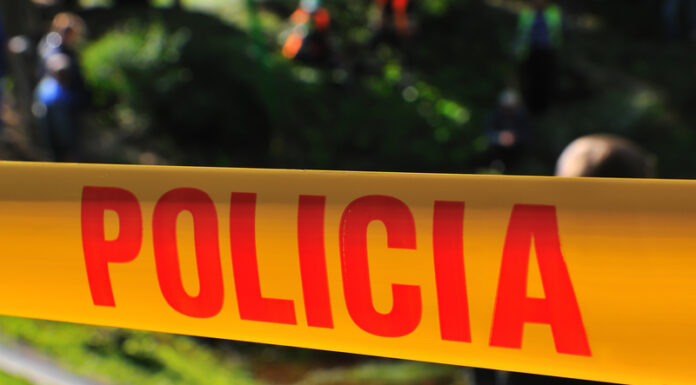On Thursday night, April 17, 2025, armed individuals disguised as military personnel attacked a cockfighting venue in rural Ecuador, resulting in the deaths of 12 people and injuring several others. This incident marks one of the region’s deadliest attacks this year.
The attack took place in La Valencia, a community within El Carmen canton in Manabí province, emphasizing the increasing insecurity in what was once a relatively peaceful South American nation.
Security cameras captured the moment when at least five men entered the cockfighting ring with automatic rifles and began shooting at the unsuspecting audience. Panic ensued as spectators sought cover. Witnesses reported that the assailants also stole around $20,000 in prize money during the attack.
“We have 12 people deceased as a result of an armed attack by a criminal group,” stated Police Colonel Renan Miller Rivera. He noted that several individuals were wounded, without specifying the precise number of injuries.
Following the shooting, police arrested four individuals suspected of involvement. Among them was a person described by National Police Chief Victor Hugo Zarate as a “target of intermediate value” allegedly linked to a criminal organization known as “R7.”
The assailants’ use of counterfeit military attire is a common tactic used by criminal gangs in Ecuador, allowing them to move more freely and potentially mislead victims and authorities during operations.
After the attack, law enforcement found abandoned military-style uniforms and two vehicles on a nearby highway. Colonel Rivera mentioned that one car was set on fire while the other was overturned, indicating an attempt by the perpetrators to destroy evidence and cover their escape route.
Police later released footage showing the retrieval of evidence hidden under bags and tree branches. The recovered items included eight rifles, four pistols, three shotguns, eight magazines, 11 cell phones, ballistic helmets, and tactical gloves, showcasing the advanced level of equipment used by these criminal groups.
The incident is part of a broader trend of rising violence in Ecuador in recent years. The country has faced a significant increase in drug-related crime, with the homicide rate climbing from six per 100,000 inhabitants in 2018 to a record 47 per 100,000 in 2023. This January alone recorded 781 murders, making it the deadliest month in Ecuador’s recent history.
The massacre in La Valencia is now considered the most lethal armed attack in Manabí’s history. The province was placed under a 60-day state of emergency on April 12 due to the surge in violence associated with criminal gangs.
Ecuador’s strategic position has turned it into a key transit point for illegal drugs, particularly cocaine, moving from neighboring Colombia and Peru to markets in the United States and Europe. The Center for Strategic and International Studies attributes Ecuador’s vulnerability to weak political institutions, a dollarized economy, and a free trade agreement with Europe, which have facilitated the transshipment of cocaine.
President Daniel Noboa has indicated that about 70% of the world’s cocaine now passes through Ecuador’s ports before being shipped to international destinations.
The country currently houses approximately 20 criminal gangs involved in activities such as drug trafficking, kidnapping, and extortion. These organizations are competing for control over cocaine routes, leading to an estimated one killing every hour at the beginning of this year, according to police.
Since January 2024, Ecuador has been under a state of internal armed conflict declared by President Noboa in response to the rising violence. The government has officially designated 22 gangs as terrorist organizations and has deployed military forces to counter their influence.
Criminal groups originating from the prison system have expanded their operations across Ecuador, fragmenting the criminal landscape as local gangs seek independence. Experts caution that a heavily militarized approach may yield only temporary results without addressing the underlying causes of crime.
The growing presence of international criminal organizations has further complicated Ecuador’s security situation. Mexican cartels and European mafia groups have set up operations in the country, especially in coastal areas near major ports. These foreign entities have reportedly trained local gangs and introduced new methodologies, including extreme violence, to maintain control over territories.
As investigations continue into the full circumstances of this violent incident, many Ecuadorians remain in a state of fear amid what has become one of Latin America’s most serious security crises.








